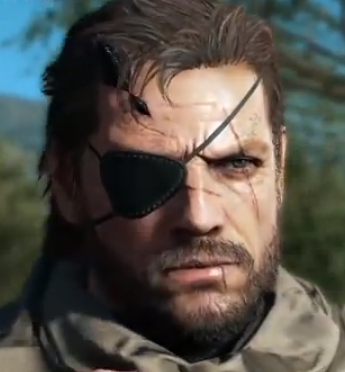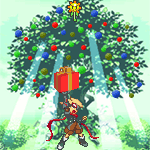|
 345x372 Thomas Blakiston The turn of a new century seems to bring out a certain madness in many people. They wish to believe, I suppose, that an arbitrary mark on a calendar can somehow in itself signal some great shift in the universe, as if nature itself will take notice of the arbitrary ways in which we divide our measurements of time. Even before the 20th century dawned, I heard many express the sentiment that there was hope that it might be a century of peace. Much as I might wish for such a thing, it is difficult to understand why one might genuinely believe it. Did our ancestors imagine such things in centuries past? If they did, I cannot imagine such sentiments ever lasted very long. But I am getting sidetracked. My point was that such sentiments are even more inexplicable considering the chaos that has engulfed China for the last year. Reports of the slaughter of foreigners and Christians in the country never seem to cease, and while I suspect that exaggerations abound as they always do such a state of affairs is inexcusable. And yet I recognize that the causes of these events are complex, and much of the blame lies with the West as well as with the incompetence and tyranny of the imperial government. The decision to assist the Eight-Nation Alliance was not an easy one, for I recognize that ultimately any resolution to this conflict will only entrench further Western colonialism in China. Given the pressures I am under, however, both foreign and domestic, I felt that I had no choice but to agree. Some will no doubt call me a hypocrite for my scepticism of colonial enterprise. Am I not, they counter, the arch-colonialist, the man who built for himself a kingdom in a foreign land? Did I not make my fortune as the agent and beneficiary of the greatest empire the world has known since Rome itself? These criticisms are not, I confess, without merit. And yet I think they miss the fundamental purpose of what I have done, and the essential nature of the country that we have built here. It is true that I made my fortune in part due to the unequal treaties forced upon Japan by Western powers. At first I did not consider what I did to be exploitative; I convinced myself that such things were somehow just that might made right, perhaps, or that we were providing the Japanese a service by helping to civilize them. Slowly, however, as I continued to live among them, I began to realize the bias inherent in my perspective. We were not truly any more civilized more technologically advanced, perhaps, but that meant little. Where I had first seen the Japanese as noble savages, I began to realize that they were in fact our equals. And if it was true of the Japanese, was it not also likely to be true of others? My view of the world changed, and I began to think about how I could use my new understanding to better the world as a whole. It was then that the idea began to bubble to the surface of my mind a new, independent state, where men and women of all races and religions could live in harmony. At first I thought that Ezo might become this state, but I quickly realized that the entrenched conservatism of the Shogunate and the territorial ambitions of the Emperor would make such a thing impossible. As my mercantile operations in Asia expanded, however, I had many opportunities to visit the island of Taiwan, or Formosa as it is often called in Europe. I wondered if perhaps it could serve as the country I imagined. It seemed only a matter of time before either a European power or perhaps an ascendant Japan decided to conquer and colonize it, given the increasingly obvious weakness of the Chinese Empire, and I wondered if it would not be possible to win for it a better fate. I worked for several years to lay the groundwork in secret, informing only a few of my closest allies including, of course, my friend Jules Brunet, to whom both I and this country owes far more than any other. We did not abandon Ezo, however. We stood and fought as long as we could, until our navy had been crushed and our armies defeated. It was difficult to put our mercenary forces in harm's way, knowing that we would need them in the capture of Taiwan, but despite my pragmatic nature I am no stranger to the concepts of honour and loyalty, and I did not leave Ezo until there truly was no hope remaining. I recall the day we disengaged and bid our farewell to that beautiful island. My greatest regret is those who insisted upon staying behind, chief among them my friend Kasuga Saemon. I remember the last time I saw him: I pleaded for him to join me, to see that the last hope for victory had long since faded. He answered that he understood that, and that that was precisely why he had to continue to fight. I will never pretend to fully understand the man; all I can say is that he was someone out of another age, perhaps an age that never truly existed at all. Since then I have heard many legends of the last stand of the shogunate, but the stories about The Defiance of Kasuga Saemon put them all to shame. How true they are I cannot say a few more fanciful versions suggest that he killed a thousand men by his own hand, or that he wielded a flaming sword so bright that it blinded the unrighteous but there is no doubt that his defiance made its mark. Imperial losses in the final capture of Hakodate were staggering, and they say that Ezo only truly fell the moment Kasuga Saemon drew his last breath. When I saw him last he asked two things of me: first, that, if possible, I ensure that he be buried in a small churchyard under a cherry tree. This was made difficult when I found out that his body had been cremated and his bones sent to Rome to be buried as a martyr of the Catholic Church. I finally succeeded, however, by sending a Japanese cherry tree to planted in the yard of the appropriately-named Church of St. Francis Xavier. I hope that he would find his final resting place suitable. His second request was easier: he asked simply that I publish his final book of poems. Not only have I done so, I have ensured that, at least as long as I live, his poems will never be out of print nor will they ever be unstudied at the Kasuga Saemon School of Japanese Literature at the Royal University of Taipei. But I have sidetracked myself again reminiscing about my old friend. He was one of the few who battled to the death. Most samurai were more pragmatic, and gave up the fight when they realized victory was impossible. Some surrendered to Ezo, but early incidents in which overzealous imperial troops slaughtered surrendering samurai made this less common than it might have otherwise been. The more conservative among them followed the shogun and his family to China, hoping to hold on, perhaps, to an impossible dream for as long as possible. But many were tired of the shogun and either too proud or too scared to surrender to the emperor for them, escaping to Taiwan presented a new opportunity. It was an odd mix that sailed with me from Hakodate to Keelung between the array of European merchants and the collection of mercenaries from around the world, men from at least a dozen nations maybe two were aboard those ships when they docked. Friction with local Chinese officials was immediate, but I had many friends in Taiwan, and before long we were winning even more by helping the locals in their conflicts against the native Taiwanese. Slowly we began to expand our de facto control over much of Keelung, laying the groundwork for the eventual seizure of the city and the island from Chinese control. We simply had to wait for the right opportunity, which arose during the Sino-French War. Thanks in large part to the masterful diplomacy of Grand Admiral Brunet, we were able to ally ourselves with the French during the war a necessary evil, I admit and proclaim an independent Taiwan under our rule. That was not the end of our fighting, of course, and we resisted Chinese counterattacks for some time, bother during and after the war. Once again, Grand Admiral Brunet now the Duke of Taipei was invaluable in defeating our enemies time and time again. Credit must go as well to the many soldiers who fought and died for their new homeland, whether adopted like the many European, Japanese, and Indian soldiers who came over from Ezo as mercenaries or exiled samurai or not. It should not be understated how many Chinese residents of this island nation fought against the tyrannical imperial government. After the British joined the French in recognizing our new state, international opinion shifted, and China was forced to give up for now, at least its claim. Even Japan now recognizes our state, despite its initial hostility in part because of those of us who founded it, I expect, and in part simply because it coveted Taiwan for itself. Relations across the strait are still as chilly as ever and I do not expect that siding with the West against the Boxers will improve things but I still have hope that one day things might change. All this brings us to the issue of what I have done since proclaiming independence in 1885. Many will point to my coronation as colonial excess I would counter by asking them to point to a successful republic in Asia. We are bound by the realities of history, and the reality is that the people of this island were more likely to accept me as a conquering king than the founder of a new republic. My critics overlook the constant democratic reforms I have enacted, culminating with free and open elections in 1895, only a decade after the kingdom's formation. While I do retain some power, I would point out that I have less personal power than any other head of state in Asia, and less than many European rulers as well. If that can not be seen as a success in the eternal quest for freedom and justice, I don't know what can. I would add to that that the Constitution ensures equality before the law of all men, no matter their race or religion. Would this have occurred without my coronation, if Taiwan had been a Chinese-majority republic from the start? I doubt it. Do my critics recall the outrage at my insistence that women be given the right to vote alongside men in the elections of 1895? How many civilized Western nations have done such a thing? To those who say that it is a nation of whites ruling over the rest, I will remind them that the majority of Members of Parliament are ethnically Chinese, and that the royal family is as Japanese as it is British, thanks to my queen. The truth is that the Kingdom of Taiwan or Kingdom of Formosa, as it is usually called in English is a beacon of freedom, justice, and racial and religious equality not only in Asia but in the world. It has been difficult walking the line between the many threats this young nation faces, and yet we have not only survived but prospered. I can take some credit, but most of it must go to the many people who have not only accepted my vision of this young kingdom but fought for it. From Grand Admiral Brunet, to the Samurai and Gurkhas who travelled with me from Ezo, to the Chinese peasants who dared to believe in something greater than petty despotism, it is the people of this nation who have made it what it is today. There will be many challenges to come in the future, and I only hope that I or, if I should die, my heirs will be ready to face them. I do not need to hope that the rest of this nation will be ready, for I know that it will. I am reminded of an anecdote that I think summarizes the unity of this newly-forged people. I have mentioned that many Chinese still claim that Taiwan is a rightful part of China that it is, as they say, 天下, or Under Heaven. On one occasion, I spoke to the Minister of Defence about this, whose ancestors have been in Taiwan since the Ming Dynasty. He told that in the army, where this claim is naturally rejected, the ethnically Chinese soldiers have taken to mocking it by proclaiming that Taiwan is 外天, meaning Outside Heaven, or, perhaps, Outer Heaven. Thomas I, King of Formosa
|
| # ? Aug 24, 2014 13:35 |
|
Saeki Fumiko AIDS lol
|
| # ? Aug 24, 2014 13:47 |
|
I like to think the jail I was in was like La Catedral so I just left to live my life as a semi-successful backgammon player.
|
| # ? Aug 29, 2014 17:07 |
|
sup its katsu kaishu here first prime minister of japan
|
| # ? Aug 30, 2014 01:13 |
|
the people want a sim. the people need a sim. the people demand a sim.
|
| # ? Sep 13, 2014 11:36 |








